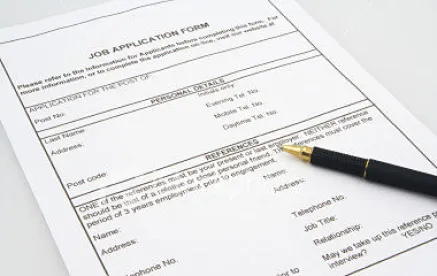The New York City Commission on Human Rights’ new publications clarify legislation prohibiting employers from asking New York City job applicants about their past compensation and benefits.
The New York City Commission on Human Rights (NYCCHR) has issued frequently asked questions (FAQs) and fact sheets for both job applicants and employers setting forth its interpretation of the new law amending the New York City Human Rights Law that bans inquiries into a job applicant’s salary history. The new law will go into effect October 31, 2017. The FAQs and job applicant and employer fact sheets provide additional information for both employers and applicants and list “best practices” for the hiring process.
As previously described here, the ban prohibits employers from inquiring about applicants’ past compensation, including salary, bonuses, and benefits. It further bars employers from conducting searches of public records for the purpose of obtaining salary history, and makes it illegal to rely on salary history in determining what salary and/or benefits to offer applicants. If an applicant “voluntarily and without prompting” discloses his or her previous compensation, however, the employer may confirm and use that information in determining compensation.
New Guidance Provided by NYCCHR
The FAQs and fact sheets provide the following new guidance and recommendations on the ban:
-
An employer may rely on “objective indicators” of an applicant’s prior performance, such as revenue, sales, or books of business. Employers may also rely upon “general industry compensation standards.”
-
Under the current NYCCHR FAQs, an employer may
-
ask (a) whether an applicant will have to forfeit deferred compensation or unvested equity from his or her current employer and (b) the value and structure of such deferred compensation or unvested equity,
-
request documentation to verify the applicant’s representations, and
-
consider such information in making the job offer.
-
Note, however, that the statute does not contain an express exemption regarding deferred compensation, and NYCCHR’s position on this issue might not be the final word. A more cautious approach for employers would be to initially inquire only into whether an applicant expects to forfeit any deferred compensation. If the applicant indicates that he or she expects to be “made whole” for any deferred compensation being forfeited, the employer can ask for proof of that.
-
The law will apply to hiring practices that have an impact in New York City, meaning that the new law applies not only to applicants for jobs within the city, but potentially also where part or all of the hiring process is conducted within the city. Note, however, that residency in New York City is not, on its own, sufficient to satisfy the impact test.
-
Questions regarding salary history on a job application are not permitted even if the employer makes clear that a response to such questions is voluntary.
-
Employers who use nationwide or global applications will not avoid liability under the statute merely by including a disclaimer stating that NYC applicants need not answer the salary history question. It is strongly recommended that employers change their applications for candidates to whom the NYC law might apply.
-
The law allows an employee to disclose his or her salary history as long as the disclosure is “voluntary and without prompting,” which is defined by the FAQs as “if the average job applicant would not think that the employer encouraged the disclosure based on the overall context and the employer’s words or actions.”
-
Recruiters and employers’ hiring agents are also covered by the law and may not inquire into salary history. The NYCCHR recommends that such recruiters obtain written consent from applicants before disclosing salary history to employers.
-
Once an individual has been hired and is currently employed with the employer, the employer may inquire into salary history.
-
The NYCCHR takes the position that the law applies to independent contractors who do not have their own employees.
Recommended Actions
Employers should train every employee involved in the hiring process regarding compliance with this law; ensure that all employment applications and other documents provided to prospective employees during the application process are made compliant; ensure that policies and procedures are in place to properly document the exchange of relevant information with job candidates; and ensure that the risk of liability for recruiter violations is properly allocated. The new law also highlights the need for employers to conduct regular, privileged pay equity audits.




 />i
/>i

